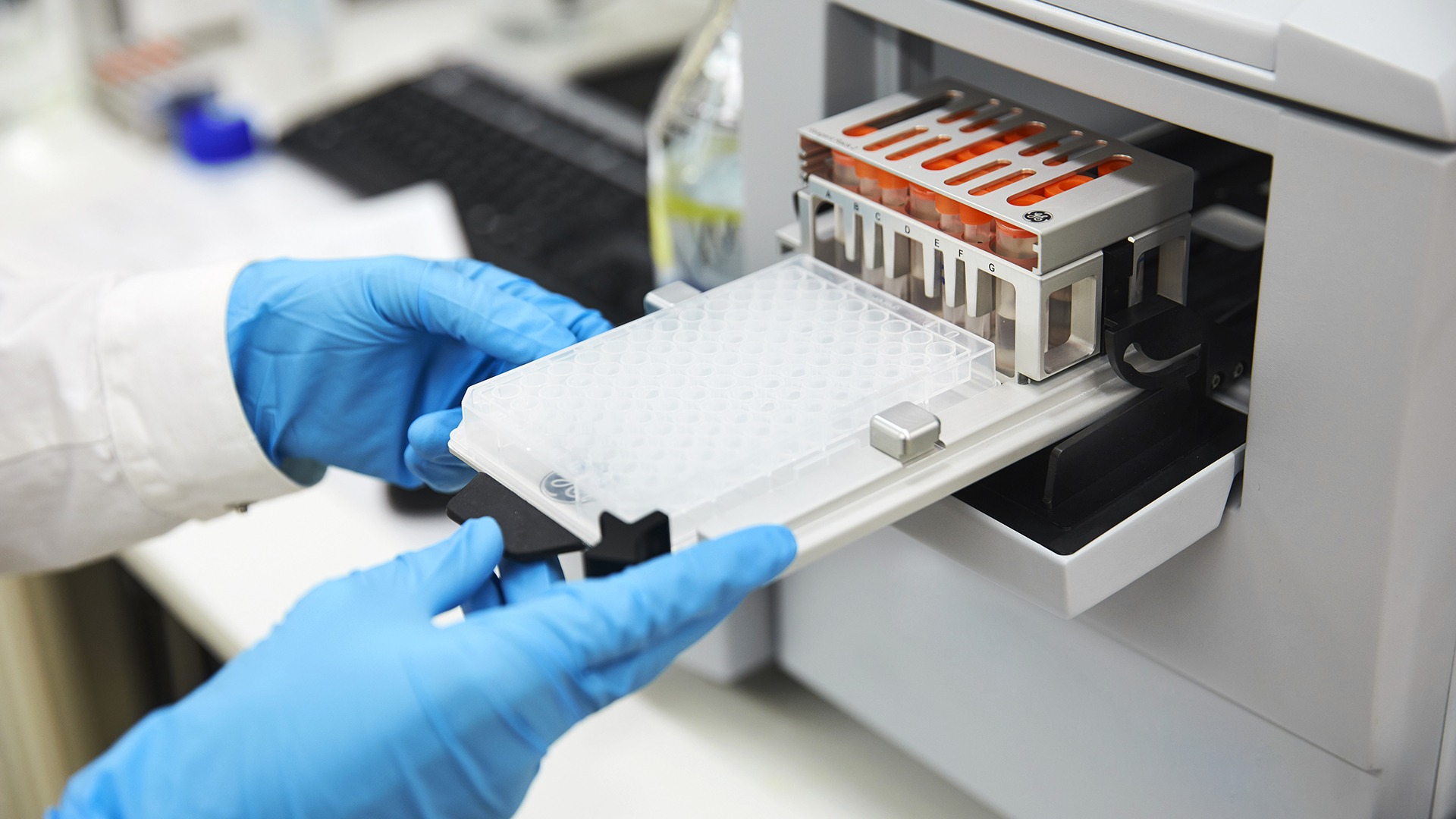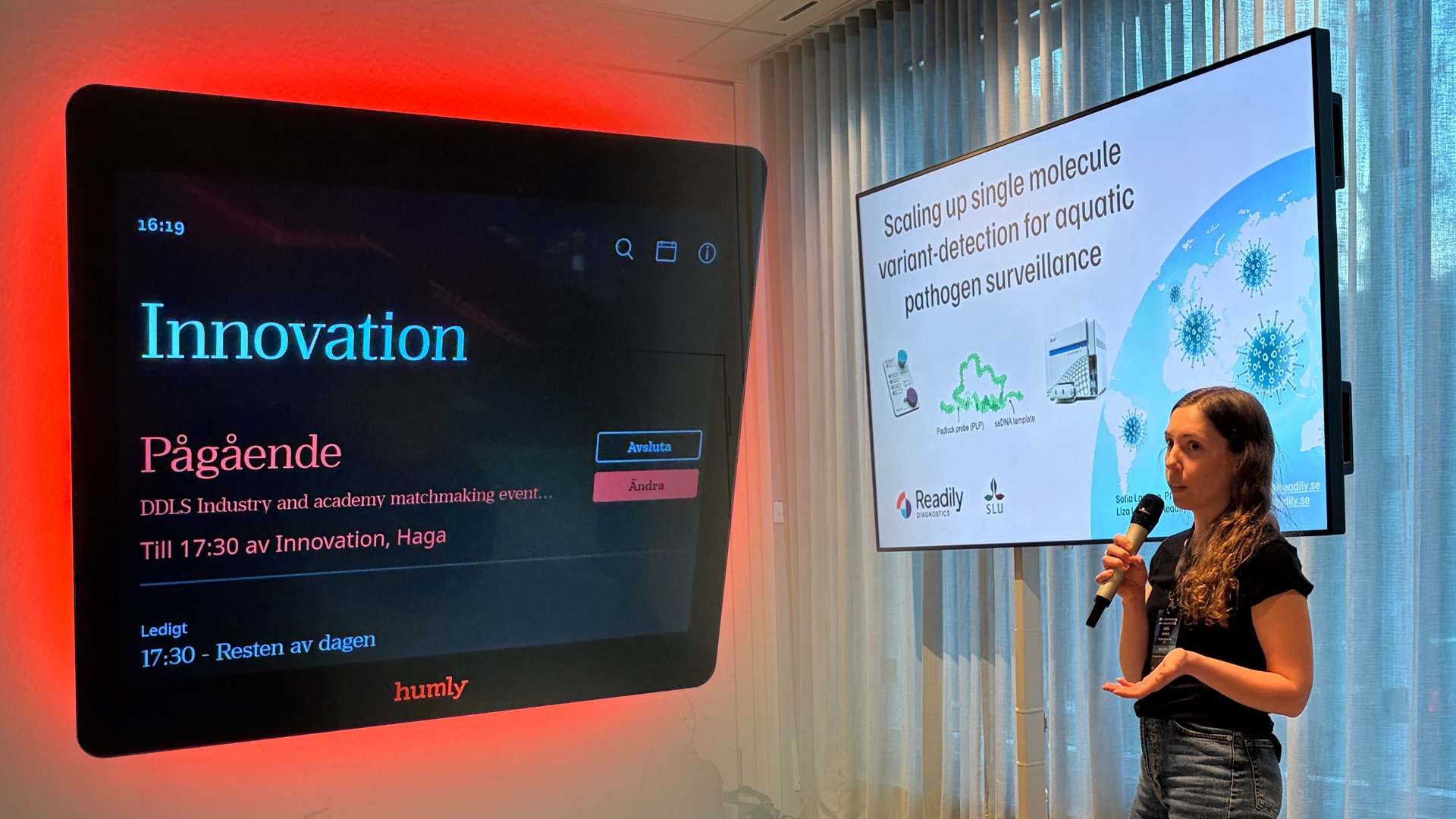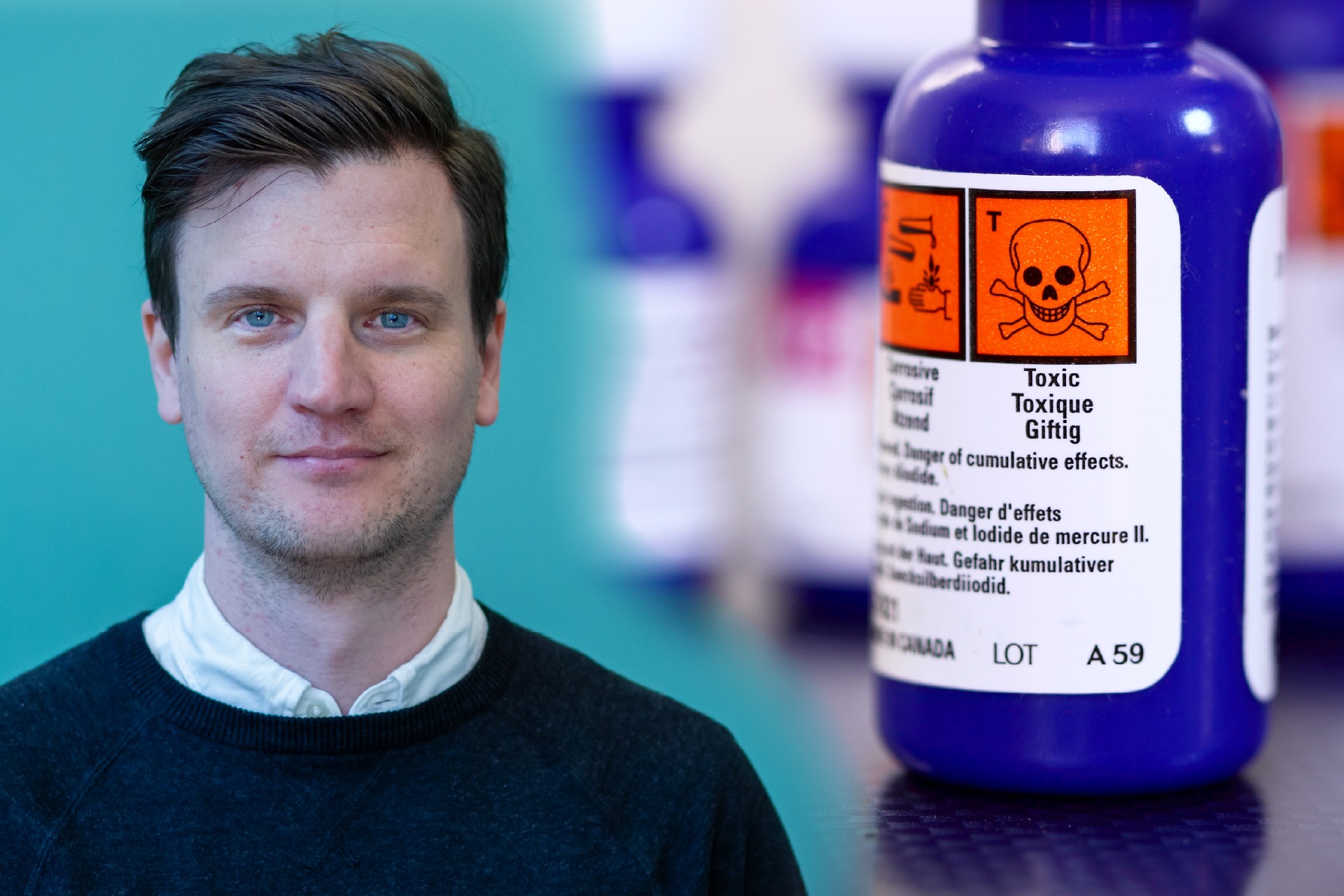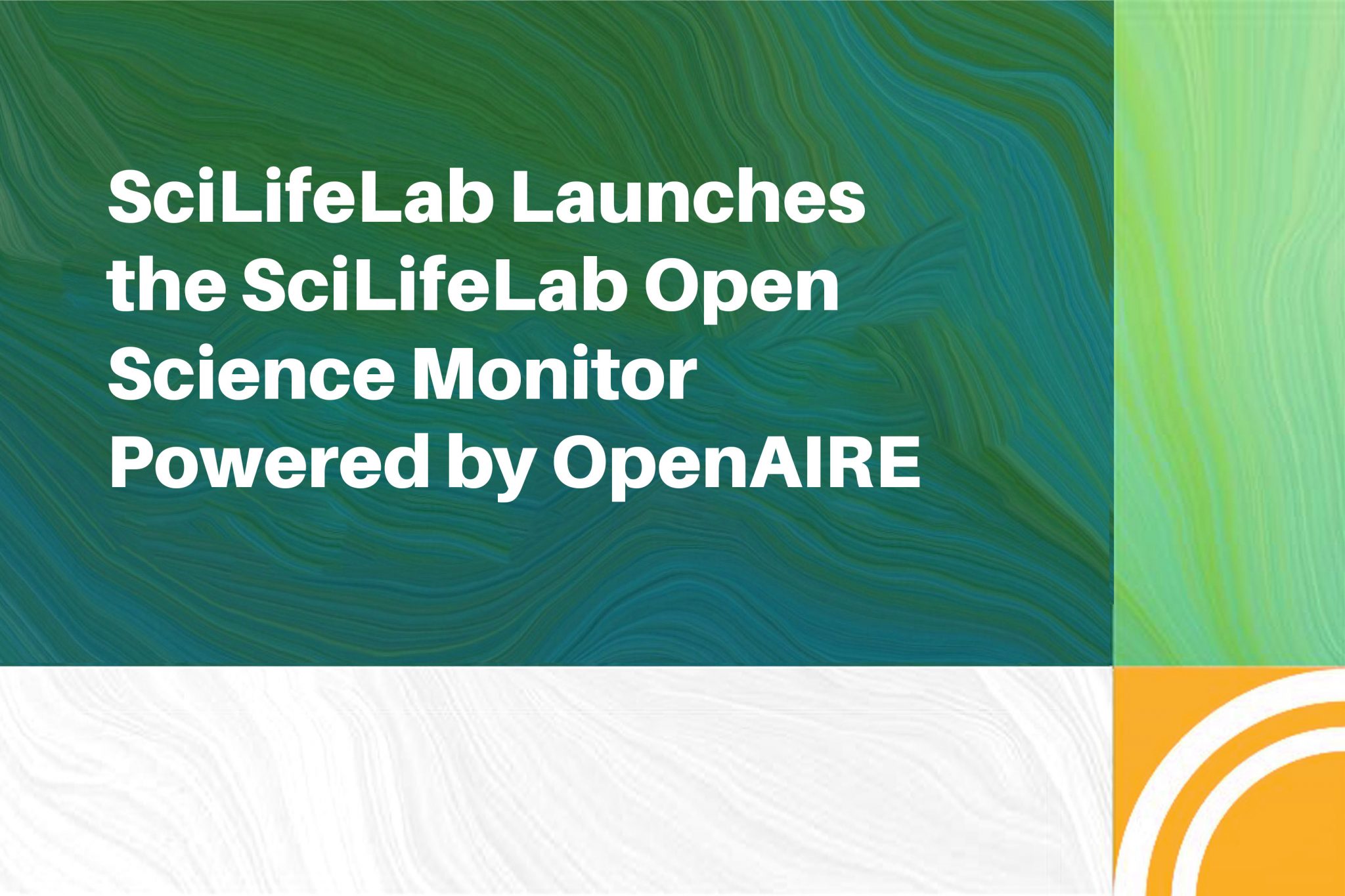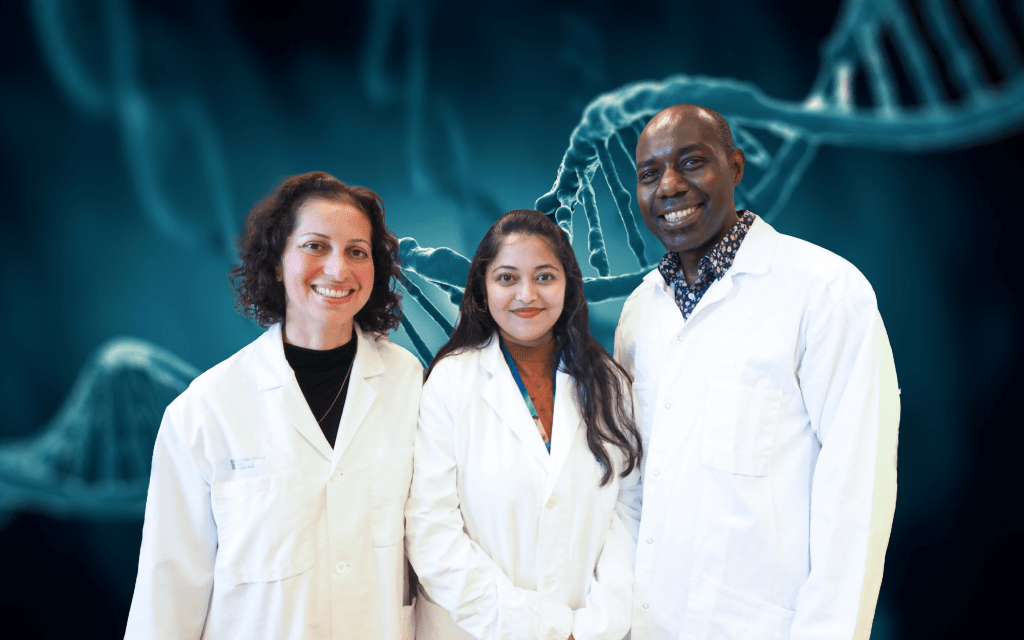Infrastructure update: The Drug Discovery and Development (DDD) platform
The SciLifeLab Drug Discovery and Development (DDD) platform has since the start been an important part of the SciLifeLab infrastructure. The platform offers industry-standard infrastructure, expertise, and strategic support for drug discovery and provides support for projects so that they can progress towards a preclinical proof-of-concept. So far, the platform has mainly focused on small molecules, human antibodies, and new modality therapeutics, but they are now ready to take it to the next level with therapeutic oligonucleotides and new cutting-edge technologies.
Through the years, a number of successful collaborations have passed through the platform and reached clinical trials, and three of the resulting new startup companies are now registered on Nasdaq. In recent years it has become clear that precision medicine is not just about DNA sequencing and that the development of technology platforms to create viable biotech companies around, capable of developing the medicines of the future, is vital.
Marene Landström’s (Umeå University) antibody-based prototype drug for prostate cancer, and an accompanying diagnostic tool, are both based on antibodies that the DDD-platform helped select. Another recent project exit from Sara Mangsbo (Uppsala University) is also based on a precision medicine platform for cancer treatment.
In the near future, the DDD-platform will upgrade its services with several new and promising technologies and expand the repertoire of therapeutic modalities to cover oligonucleotide therapeutics.
Oligonucleotides
Therapeutic oligonucleotides are a group of drugs that have had a major clinical breakthrough in the last five years. Oligonucleotides are short single or double-stranded fragments of DNA or RNA that acts through gene silencing or RNA interference. The biggest advantage of oligonucleotides is their relatively short development times; if the conditions are right, clinical studies can be started 2-3 years after the project has started.
The major challenge for this type of drug is to develop sufficiently metabolically stable oligonucleotides that are able to reach their target organs. At present, oligonucleotides are an especially good choice for diseases in the liver, central nervous system, and eyes.
“The introduction of oligonucleotides at the DDD-platform means increased competence and new tools to support Swedish drug research and will expand the platforms presence to Gothenburg (in addition to Stockholm, Uppsala and Lund)”, says Per Arvidsson, DDD-platform Director.
A closer collaboration with the academic innovation support systems
Going from basic biomedical research at the universities to developing a drug that can reach the clinic is an extremely complex and costly process, one that usually requires commercialization in order to bear the costs of the development phase.
An important part of the DDD-platform’s work is to prepare researchers for the technical challenges that come with commercialization. Complementary knowledge of e.g. patents, markets, and financing are available at innovation offices, incubators and university holding companies. Through a Vinnova sponsored project, the DDD-platform and all Swedish innovation support systems has agreed on an updated collaborative model.
“In concrete terms, this means that the DDD-platform and the various support systems at the universities work in joint project groups together with the researchers, so that the technical support the DDD-platform offers is given simultaneously and in coordination with the commercialization support. A “one-stop shop” for academic drug development”, says Kristian Sandberg, DDD-platform Co-Director.
Introduction of four new technology areas, important for future drug development
“In collaboration with the DDD-platform’s international platform advisory board, a renewed strategic orientation of the platform’s work has been compiled. An important component is to divide the focus on new technologies for early drug research into four areas”, says Kristian Sandberg.
One of those areas is therapeutic oligonucleotides, another area, that is currently experiencing a rapid growth, is machine learning and how these technologies are increasingly used to upturn the efficiency of research. A third area is how binding small chemical molecules or larger peptides / proteins can be obtained from complex libraries contained in a single test tube, containing many billions of unique molecules. The fourth area is a completely new therapeutic concept that is based on proteins being broken down instead of being inhibited, known as proximity induced drugs. This is obtained when the therapeutic molecule creates physical proximity between different protein complexes.
Machine learning and virtual searches in giant “on-demand synthesis libraries”
“New project proposals that are compatible with the four focus areas will have an advantage. The DDD-platform are now making a special investment in DNA-encoded substance libraries and will be able to offer selections from a panel of substance libraries containing up to 10 billion substances”, says Kristian Sandberg.
The outcome of this type of screening often results in hundreds of thousands of interesting chemical starting points and the plan is to use machine learning to identify patterns for the most interesting starting points regarding drug development. These patterns will then be used to make computer-based screens of other libraries, which in turn contain billions of different structures.
The foundation for this is actually based on the same type of algorithms used for face recognition and the workflow was originally developed by the company X-Chem in collaboration with Google, and was published in a groundbreaking work two years ago. The DDD-platform now has the opportunity to make this technology available to academic researchers.
New Platform Scientific Director: Jens Carlsson (Uppsala University)
Professor Jens Carlsson from Uppsala University, one of Sweden’s most prominent researcher in the field of computer-based substance screens, will take the position as new Platform Scientific Director (PSD) at the DDD-platform.
“Together with Jens, we have developed a promising antiviral prototype drug with, in some respects, superior properties compared to what large pharmaceutical companies today can offer patients with coronavirus infections. The DDD-platform and Jens share a common interest in establishing these technologies for the benefit of Swedish pharmaceutical research and we hope that more researchers and companies will join”, says Per Arvidsson.
“We feel confident that the DDD-platform, with the continued support for academic researchers’ dreams of developing drugs, intimate collaboration with the academic innovation systems, and focused investments in our technology areas, will continue to be relevant for new innovations. A dream project for us would be to combine the support we can provide with all the talent, competence and ingenuity that exists at Swedish universities, to save patients with life-threatening diseases, such as glioblastoma, or to relieve lifelong suffering for diseases where there are few or no effective treatments”, say Per Arvidsson.
New call for small molecule, antibody and oligonucleotide project
At this point the DDD-platform has an open call for small molecule (2-3), antibody (2-3) and oligonucleotide (1-2) projects. If you are interested, you can visit the call site (call opens today at 16:00) or join the lunch-webinar that will take place on June 17.
